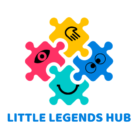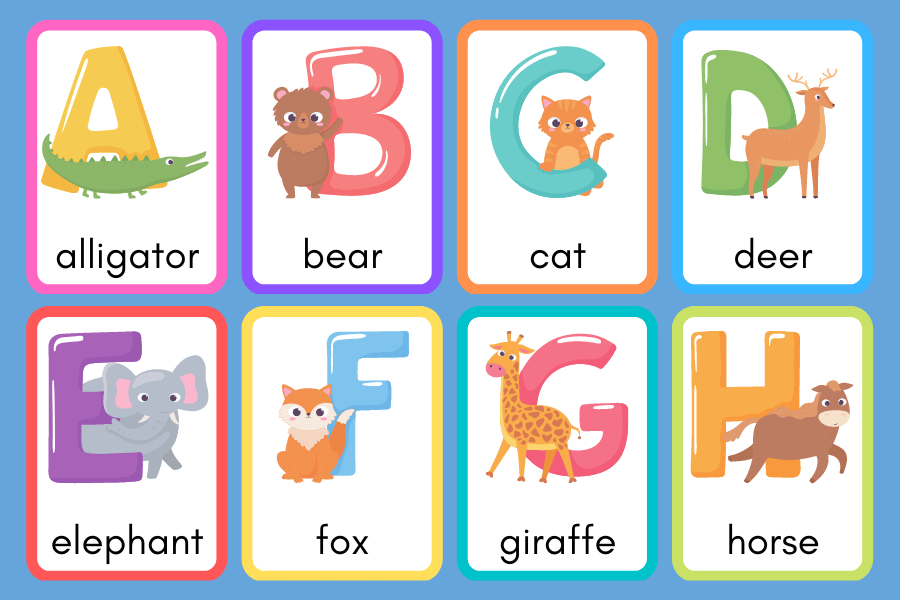Welcome to our world of educational wonders! Our Alphabet Flashcards for Preschoolers are a fantastic resource designed to make learning the ABCs a joyful and interactive experience for your little ones.
In this blog post, we’ll delve into the realm of uppercase and lowercase letters flashcards, discuss their age-appropriateness, explore effective teaching methods, and highlight the numerous benefits these flashcards bring to your child’s early development.
Alphabet Flashcards for Preschoolers – FREE Printables
Uppercase Letters Flash Cards and Lowercase Letters Flash Cards
Our Alphabet Flashcards set includes both uppercase and lowercase letters, providing a comprehensive learning tool for toddlers. Each flashcard is crafted with vibrant colors and engaging illustrations to capture your child’s attention, making the process of learning the alphabet an enjoyable adventure.
What Age are Alphabet Flash Cards For?
Alphabet Flashcards are ideally suited for toddlers and preschoolers aged 2 to 5 years old. This is a critical period in a child’s development when they are curious and eager to absorb new information. Introducing alphabet flashcards during this stage helps lay a solid foundation for future literacy skills.
How Do You Teach the Alphabet with Flash Cards?
Teaching the alphabet with flashcards can be a delightful experience. Begin by introducing a few letters at a time, incorporating fun and interactive activities. Repeat the letters frequently and encourage your child to associate each letter with its corresponding image on the flashcard. Consistency and positive reinforcement play key roles in effective teaching.
FREE Printable Alphabet Flashcards with Pictures
What are the Benefits of Alphabet Flashcards for Kids ?
Alphabet flashcards offer numerous benefits for early learners, including:
- Language Development: Enhances language skills and comprehension.
- Independent Learning: Encourages self-paced learning and exploration.
- Enhanced Vocabulary: Exposure to letters and images aids in expanding your child’s vocabulary.
- Letter Recognition: Helps in recognizing both uppercase and lowercase letters.
- Improved Memory: Repetition with flashcards reinforces memory retention.
- Early Literacy Skills: Lays the groundwork for reading and writing.
Are Flashcards Effective for Children?
Yes, flashcards are highly effective for children, fostering a multisensory learning experience that enhances cognitive development. They engage visual learners through colorful images and facilitate auditory learning when letters are named.
Flashcards have been proven to be a valuable educational tool, promoting active learning and knowledge retention. Their versatility makes them adaptable to various learning styles, ensuring each child can benefit.
Where Can I Get Free Flashcards?
You can download our Uppercase Alphabet Flashcards and Lowercase Alphabet Flashcards for free from our website www.littlelegendshub.com.
Do Flashcards Help with ADHD?
Flashcards can be beneficial for children with ADHD by providing a structured and engaging learning activity. The visual and auditory stimuli can help capture their attention and aid in focus development.
Our Alphabet Flashcards for toddlers are more than just cards; they’re keys to unlocking your child’s early learning potential. Download them today from our website and embark on a delightful journey of ABC exploration with your little one!
Tips how to use the Alphabet Flashcards for Preschoolers
Start Slow
Begin with a few letters at a time. Introduce one or two letters and gradually add more as your toddler becomes familiar.
Make it Fun
Turn learning into a game! Use funny voices, sing the alphabet, or have a scavenger hunt to find the flashcards around the house.
Repeat, Repeat, Repeat
Repetition is key. Repeat the letters often and revisit previous ones to reinforce their memory.
Use Real-life Examples
Connect letters to things they know. Show them objects that start with the letter on the flashcard.
Involve Senses
Encourage touch by letting them hold the flashcards. This adds a tactile element to the learning process.
Create Simple Words
Combine letters to make simple words. For example, ‘C’ and ‘A’ become ‘CA’ – a simple way to introduce blending.
Interactive Play
Incorporate playtime with the flashcards. Ask them to find a specific card or match uppercase and lowercase pairs.
Celebrate Progress
Praise their efforts! Positive reinforcement builds confidence and makes learning enjoyable.
Incorporate Daily Routine
Integrate flashcards into daily routines, like using them during snack time or before bedtime.
Keep it Short
Toddlers have short attention spans. Keep learning sessions brief and engaging to maintain interest.
Be Patient
Every child learns at their own pace. Be patient and encouraging, and celebrate each small achievement.
Use Colors
Associate each letter with a specific color. This adds a visual cue that aids in memory recall.
Rotate Flashcards
Introduce variety by rotating the flashcards regularly. This keeps the learning experience fresh and exciting.
Encourage Talking
Ask questions about the flashcards. What sound does the letter make? Can they name something that starts with that letter?
Group Similar Letters
Group letters with similar shapes or sounds together. This helps toddlers see patterns and similarities.
Remember, the goal is to make learning enjoyable. Adapt these tips based on your toddler’s preferences and watch as they embark on their exciting journey of learning the alphabet!
Download Free Uppercase Alphabet Flashcards Here
Download Free Lowercase Alphabet Flashcards Here
MORE Alphabet Flashcards for Preschoolers

